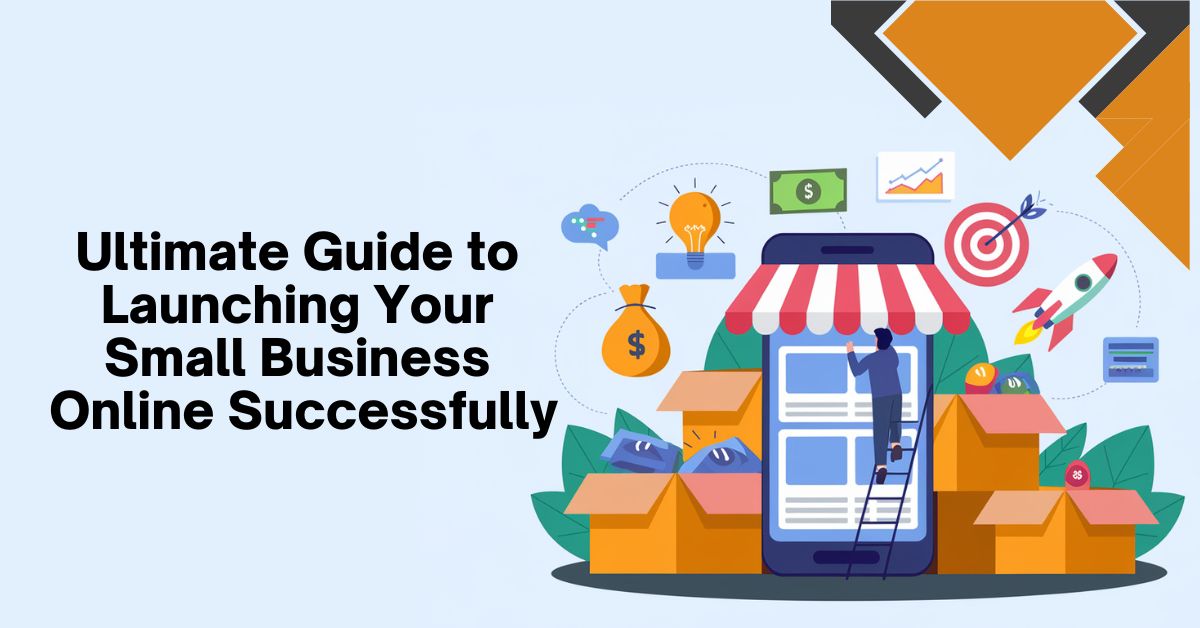### How to Start a Small Business Online: A Comprehensive Guide
Starting a small business online is an exciting venture, filled with opportunities and the potential for significant rewards. With the internet at your fingertips, entrepreneurs can reach a global audience and explore countless business possibilities. This blog post will serve as a thorough guide for aspiring online business owners, offering insights into the process of setting up and running a successful digital enterprise. Whether you’re new to entrepreneurship or looking to expand your existing operations, this article will provide valuable tips and advice on how to start a small business online.
Understanding the Online Business Environment
In today’s digital age, online businesses are booming, and the current trends indicate that this growth will continue. According to recent statistics, e-commerce sales worldwide are expected to reach $5.9 trillion by 2023. This incredible expansion highlights the immense potential of the online market. The internet offers a viable platform for small businesses, providing them the reach and scale that were once only accessible to larger corporations. With reduced operational costs and access to a global customer base, starting a small business online is an appealing proposition for many budding entrepreneurs.
Moreover, technology has leveled the playing field, enabling even those with no prior business experience to compete effectively. By leveraging social media, search engines, and digital marketing strategies, small businesses can carve out their niche and gain a substantial foothold in their respective industries. Understanding the online business environment is crucial for any aspiring entrepreneur, as it lays the foundation for a successful digital venture.
Choosing Your Niche
Selecting a niche is a critical step in the journey of how to start a small business online. A niche is a specific segment of a market that caters to a particular audience with distinct needs and preferences. It is essential to choose a niche that not only excites you but also has potential for profitability. Focusing on a niche allows you to tailor your products or services to a specific group, increasing your chances of success.
To identify a niche, start by brainstorming ideas and considering your own interests and expertise. Evaluate the market demand by conducting keyword research and analyzing trends. Tools such as Google Trends and keyword planners are invaluable in this process. Additionally, assess the competition to determine the viability of your chosen niche. Look for gaps in the market that you can fill with unique offerings.
There are countless examples of successful small businesses that began online by focusing on niche markets. From eco-friendly products to specialized coaching services, these ventures have thrived by catering to specific customer needs. With careful research and a strategic approach, selecting the right niche can set your online business on the path to success.
Essential Steps to Start Your Online Business
Creating a Business Plan
Establishing a solid business plan is fundamental when learning how to start a small business online. A business plan outlines your goals, strategies, and financial projections, serving as a roadmap for your business journey. It should include an executive summary, market analysis, organizational structure, and a detailed description of your products or services. Setting realistic goals and outlining the steps to achieve them will help you stay focused and organized.
Building Your Online Presence
An online presence is crucial for any small business. This involves choosing the right domain name, which should be memorable, relevant to your niche, and easy to spell. Your website is your digital storefront, so it’s important to invest in professional design and user-friendly navigation. Consider using e-commerce platforms like Shopify or WooCommerce to set up your online store. Ensure that your website is mobile-friendly and optimized for search engines to enhance visibility.
Marketing and Promotion
Marketing is pivotal to the success of your online business. Digital marketing techniques, such as search engine optimization (SEO), social media marketing, and email campaigns, can significantly boost your visibility and reach. SEO helps improve your website’s ranking on search engines, making it easier for potential customers to find you. Utilize social media platforms to engage with your audience and promote your products. Build a mailing list to keep in touch with customers and send them updates and promotions. With a strategic marketing plan, you can effectively reach your target audience and drive sales.
Legal and Financial Considerations
Starting a small business online involves several legal and financial steps. Begin by registering your business name and obtaining any necessary licenses or permits. Depending on your location and business type, this process may vary, so it’s essential to research the requirements in your area. Compliance with taxes and regulations is mandatory, and seeking advice from a legal professional can be beneficial.
Financial planning is equally important. Set up a budget to manage your expenses and determine your pricing strategies. Consider opening a separate bank account for your business transactions to keep your finances organized. Implement secure online payment systems, such as PayPal or Stripe, to facilitate smooth transactions for your customers. Proper financial management is vital to the longevity and success of your online business.
Tools and Resources for Managing Your Online Business
To efficiently manage your small business online, you will need a variety of tools and resources. Here is a list of budget-friendly options to consider:
- Website Builders: Platforms like WordPress, Wix, and Squarespace are excellent for creating professional websites with ease.
- E-commerce Solutions: Shopify, WooCommerce, and BigCommerce offer comprehensive features for online selling.
- Digital Marketing Tools: SEMrush, Moz, and Ahrefs provide insights into SEO performance and advertising efforts.
- Social Media Management: Hootsuite and Buffer simplify scheduling and managing social media posts across multiple platforms.
- Email Marketing Software: Mailchimp and ConvertKit help automate email campaigns and manage subscriber lists.
- Customer Relationship Management (CRM): HubSpot and Zoho CRM assist in maintaining customer information and enhancing engagement.
- Accounting Software: QuickBooks and Xero streamline financial tracking and reporting.
- Payment Gateways: PayPal, Stripe, and Square ensure secure online transactions.
Using these tools, you can effectively manage your online business operations, from marketing and sales to customer service and financial tracking.
Conclusion
In conclusion, starting a small business online is a rewarding endeavor that, with proper planning and dedication, can lead to success. By understanding the online business environment, choosing a suitable niche, and following essential steps, you can establish a thriving digital presence. Navigating the legal and financial aspects with care will ensure a compliant and sustainable operation. Utilize the recommended tools and resources to streamline your management processes and enhance efficiency.
We hope this guide on how to start a small business online has empowered you to take the first step on your entrepreneurial journey. The digital world is full of opportunities, and with passion and perseverance, you can achieve your business goals.
Ready to dive into the world of online business? Subscribe to our blog for more insightful tips and resources. Share this post with fellow aspiring entrepreneurs and leave your comments or questions below – we’d love to hear from you!





